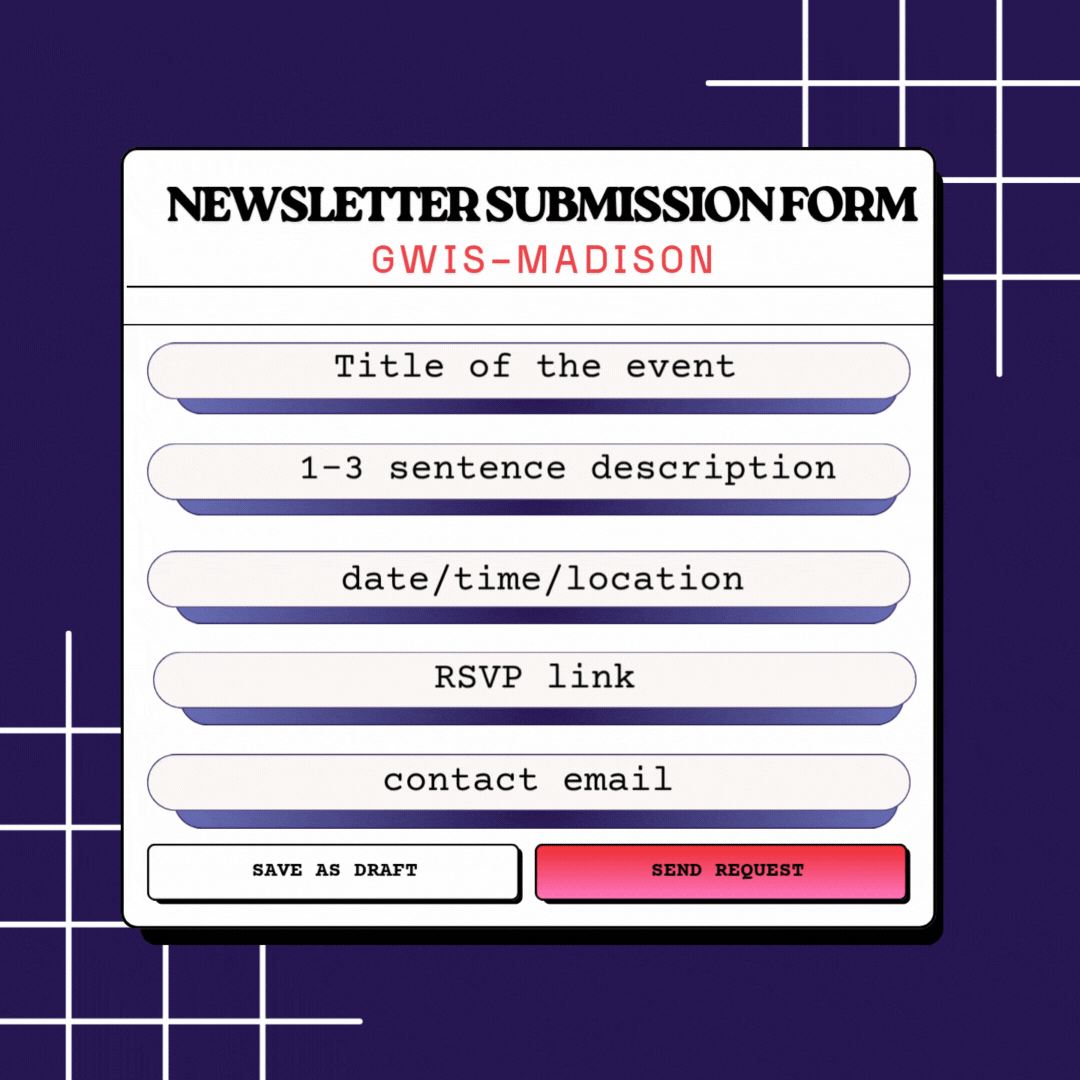
Welcome to the Madison Chapter of Graduate Women in Science (GWIS – Beta Chapter). Our chapter was founded in 1922 and is proud to be the oldest, continually active chapter of GWIS. We are a diverse group of scientists striving to inspire, support, recognize, and empower women in science. We welcome members of all genders who have undergraduate degrees and are involved in research at all levels, including graduate students, postdoctoral fellows, research associates, staff, and faculty. All scientific fields are welcome – we believe diversity in all areas strengthens our organization.
The GWIS–Madison Newsletter is a biweekly update sharing upcoming events, volunteer opportunities, member spotlights, and professional development resources within our chapter and the broader UW–Madison community. Each issue highlights ways to get involved and stay connected with GWIS activities throughout the semester.
You can sign up here to receive the newsletter directly to your inbox

Have an event, opportunity, or announcement to share with the GWIS–Madison community?
Use the form to submit your information for our biweekly newsletter. We welcome submissions such as upcoming events, member achievements, outreach opportunities, and professional resources.
You can fill out the form here.
The Madison Spotlight series celebrates the work and experiences of women in science within the GWIS–Madison community. Through short features, we aim to highlight individual research paths, perspectives, and the many ways members contribute to science. Participation is open to all members and is intended to foster visibility and community connection.
Interested in being featured? Submit the Madison Spotlight form link.
Want to learn more about our organization? Connect with Us!

